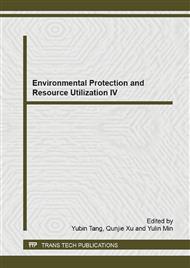[1]
Chris, Yuill. 2011. Forgetting and remembering alienation theory. History of the Human Sciences, 24(2), 103-119.
DOI: 10.1177/0952695111400525
Google Scholar
[2]
Hosie, P., Jayashree, P., Tchantchane, A. & Lee, B. S. 2013. The effect of autonomy, training opportunities, age and salaries on job satisfaction in the Southeast Asian retail petroleum industry. The International Journal of Human Resource Management, 24(21), 3980-4007.
DOI: 10.1080/09585192.2013.829517
Google Scholar
[3]
Jan, D. V. 2011. The psychologization of humanitarian aid: skimming the battlefield and the disaster zone. History of the Human Sciences, 24(3), 103-122.
DOI: 10.1177/0952695111398572
Google Scholar
[4]
Jin, S., Yoon, S. H. & Ji, Y. G. 2013. Development of a Continuous Usage Model for the Adoption and Continuous Usage of a Smartphone. International Journal of Human-Computer Interaction, 29(9), 563- 581.
DOI: 10.1080/10447318.2012.729997
Google Scholar
[5]
Kieran, Bonner. 2013. Eros and ironic intoxication: Profound longing, madness and discipleship in Plato's Symposium and in modern life. History of the Human Sciences, 26(5), 114-131.
DOI: 10.1177/0952695113479358
Google Scholar
[6]
Lee, Y. C., Chen, C. Y., Tsai, S. B. & Wang, C. T. 2014. Discussing Green Environmental Performance and Competitive Strategies. Pensee, 76(7), 190-198.
Google Scholar
[7]
Thomas, Lange. 2013. Scarred from the past or afraid of the future? Unemployment and job satisfaction across European labour markets. The International Journal of Human Resource Management, 24(6), 1096-1112.
DOI: 10.1080/09585192.2012.706819
Google Scholar
[8]
Tsai, S. B., Lee, Y. C., Wu, C. H. & Guo, J. J. 2013. Examining How Manufacturing Corporations Win Orders. South African Journal of Industrial Engineering, 24(3), 112-124.
DOI: 10.7166/24-3-657
Google Scholar
[9]
Wang, S. M., Feng, C. M., & Hsieh, C. H. 2010. Service quality in higher education: The role of student expectations. Total Quality Management & Business Excellence, 21(11), 1103-1119.
DOI: 10.1080/14783363.2010.529329
Google Scholar
[10]
Wang, W., Hsieh, P. A. & Song, B. 2012. Understanding User Satisfaction with Instant Messaging: An Empirical Survey Study. International Journal of Human-Computer Interaction, 28(3), 153-162.
DOI: 10.1080/10447318.2011.568893
Google Scholar
[11]
Wemer, B. 2013. Human economy and social policy: On ordo-liberalism and political authority. History of the Human Sciences, 26(2), 106-125.
DOI: 10.1177/0952695113478243
Google Scholar


